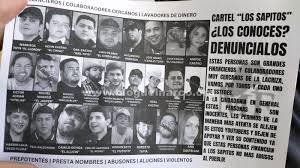Just weeks ago, Francisco won the Best Actor award for his performance at the Mexican-American Film and Television Festival & Awards.
If one word captures the essence of Francisco Javier Gómez Huerta’s life and journey, it is the quest.
Throughout our conversation, Gómez Huerta refers to the word lost, but after a brief reflection, he adopts the word search—a search that has taken him from the hills of Mexico City to television and film sets in both Mexico and the United States.
Francisco plays Leonides, the father suffering from dementia, who is under the care of Jonathan—a son struggling to reconnect with a father who has wandered into the realms of forgetfulness and detachment—in the film Fiat Lux 5000, directed by Daniel Eduvijes Carrera.
Just weeks ago, Francisco won the Best Actor award for his performance at the Mexican-American Film and Television Festival & Awards.
“I didn’t expect it. This represents a before and after in my career. I’ve fought hard, and this gave me a lot of energy. I think there’s still a lot left to do. I have many plans,” says the Mexican actor.
To portray Leonides, he worked closely with Eduvijes Carrera, who tells a deeply personal story, as his own father suffers from dementia.
“My respect to Daniel, he’s a great director. We worked a lot together—he told me a lot about dementia and what he was looking for from me in that role,” he says.
And although one might speak of a world of coincidences, in this case, the coincidences were there even before Daniel chose him to play Leonides.
Francisco’s life was nothing like that of his character in the movie. “I’m a very calm person. I don’t look for or want problems,” he adds.
Francisco had his mother hospitalized at the time. He spent a lot of time with her and felt that sense of responsibility to care for his loved ones during difficult times, with no compromises. He also had lived through the experience of having an absent father—hardworking, yes, but emotionally distant from the family, which was left in the hands of a strong-willed mother.
Francisco was born in Mexico City, though his parents are originally from Tapatitlán, Jalisco.
“We lived on a hill. We had to haul water, going up and down. By the time we got back to the house, there was barely any water left in the buckets,” he says.
There was nothing where he grew up—no urban development. He was always very skinny, and a world he could not even dream of awaited him years later.
“I used to dream about being a baseball player or a soccer player, like many other kids. We’d have black coffee for breakfast or dinner; if there was money, we had a sweet bread to go with it. Yes, I watched some films from the so-called Golden Age of Mexican cinema, but I wasn’t aware that I wanted to be an actor or dedicate myself to acting,” he says.
Francisco’s life was nothing like that of his character in the movie.
“I’m a very calm person. I don’t look for or want problems,” he adds.
For a time, he wanted to be a visual artist. He also studied computer science, but neither brought him satisfying income or fulfillment.
“My respect to Daniel, he’s a great director. We worked a lot together—he told me a lot about dementia and what he was looking for from me in that role,” he says.
During a stint at a school, he discovered music and acting. But like other things in his life, these came and went—almost as if they were guiding him by the hand to what would become his true passion.
His life has been a constant struggle. He worked at anything he could—packing groceries, at flea markets, as a cerillo (the kids who bag groceries at supermarkets in Mexico).
With no clear job prospects in Mexico, he decided to migrate to Los Angeles. What he thought would be a one-year experience stretched into three, without him even realizing it.
“One day I thought, I haven’t been back to Mexico in three years. Time had flown by. I worked in construction, in anything—I didn’t care. I needed to make money to cover my expenses,” he says.
Francisco’s story in the acting world could be seen as destiny—or something that had always been waiting for him. Although he took some college courses in Los Angeles, he didn’t have formal academic training in acting.
“I think it came naturally to me. I was born for this,” he says.
One telenovela impacted him—it was La Vida en el Espejo with Rebeca Jones, Gonzalo Vega, and Diego Luna. Francisco told himself, “I don’t want to watch telenovelas—I want to work in them.”
So he spent time between Mexico and Los Angeles, participating first in runway shows, then commercials, and small parts in some films. Francisco isn’t someone who clings to acting schools—he focuses on the characters.
“I’ve been acting since the ’90s. I know I can give more. Being part of Fiat was an awesome experience. I learned a lot. Dementia is real, and many of us don’t know how to deal with it. We need to raise awareness and show people this is real,” he concludes.








